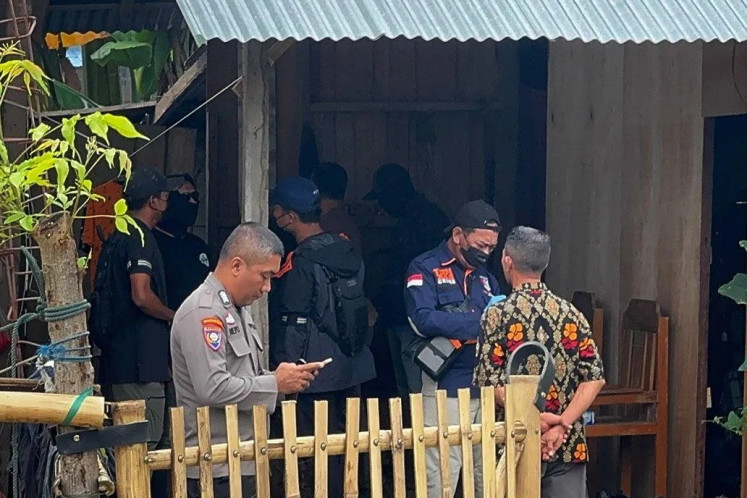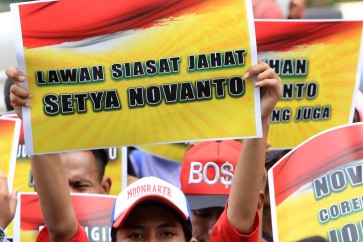Popular Reads
Top Results
Can't find what you're looking for?
View all search resultsPopular Reads
Top Results
Can't find what you're looking for?
View all search resultsKPK can name Setya Novanto a suspect, again
The KPK has a number of options to consider after Setya managed yet again to slip through its fingers.
Change text size
Gift Premium Articles
to Anyone
T
he South Jakarta District Court revoked last week the decision of the Corruption Eradication Commission (KPK) to name House of Representatives Speaker Setya Novanto a suspect in the e-ID card scandal, saying the antigraft body lacked sufficient evidence to prosecute the Golkar Party politician.
After the sole judge hearing Setya’s pretrial petition, Cepi Iskandar, banged the gavel, the House speaker was no longer a corruption suspect. Many have questioned the logic of the judge’s arguments, particularly because the KPK had collected at least 200 pieces of evidence to prosecute Setya. Nonetheless, the court’s decision must be respected.
However, this should not stop the KPK’s efforts to prosecute Setya in the mega corruption case, as the pretrial motion is a procedure that is deemed flawed. The KPK has a number of options to consider after Setya managed yet again to slip through its fingers.
First, the antigraft body can immediately start a new investigation into Setya and name him a suspect again, given the plethora of evidence. Renewing an investigation is not prohibited according to the Supreme Court Regulation No. 4/2016, and a precedence was set in the case of former Indonesian Soccer Association (PSSI) chairman La Nyalla Matalitti.
The East Java Prosecutor’s Office lost three pretrial hearings against La Nyalla, yet relaunched its investigation and finally brought him to trial – though the Surabaya District Court acquitted him. Nevertheless La Nyalla’s case shows that it is possible for the KPK to restart its investigation into Setya and declare him a suspect once again.
Second, should the KPK decide to launch a new probe, it must be ready with a case dossier on the House speaker’s alleged role in the e-ID scam. As soon as KPK investigators name Setya a suspect, they should immediately hand over the dossier to the Jakarta Corruption Court.
Article 82 paragraph (1) point (d) of Law No. 8/1981 in the Criminal Law Procedures Code (KUHAP) stipulates that “in the event of a case that has started the trial phase at a district court (grand trial), and the examination of a pretrial motion has not been completed, then the petition shall fail.” Such limitation is also regulated under Article 2 paragraph (5) of Supreme Court Regulation No. 4/2016.


















